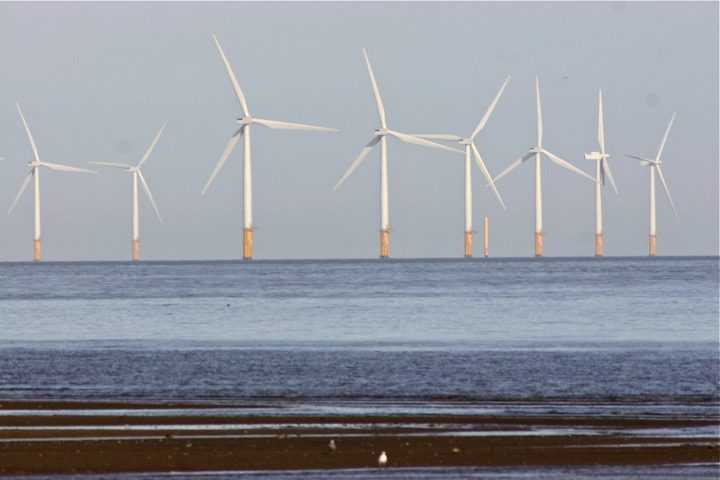
Those who are pushing us into a “green energy” future cannot seem to escape the fact that they still need those dirty fossil fuels in order to make their green dreams come true. In Connecticut earlier this month, one of those “green” projects was involved in an environmental mishap when up to 1,200 gallons of diesel fuel was spilled into the Thames River as a vessel being used to help install wind turbines was being fueled at the Gateway Terminal in Montville, just south of Norwich.
Fortunately, prior to the refueling incident, a containment boom was placed around the vessel Atlantic Oceanic, which appears to have largely contained the spill, although some diesel fuel did escape into the river. The Atlantic Oceanic was assisting with the construction of an ocean-based wind farm off of Martha’s Vineyard, which Vineyard Wind, the company in charge of the project, describes as “the nation’s first utility-scale offshore wind energy project.”
Connecticut’s Department of Energy and Environmental Protection, the U.S. Coast Guard, and Kropp Environmental were reportedly on site in an effort to clean up the spill.
The Vineyard Wind project hopes to install 62 wind turbines in the ocean off of Martha’s Vineyard, which when finished will supply 804 megawatts of electricity. By comparison, the average coal plant in the United States produces well over 1000 megawatts of energy and does not create create “death zones” for whales.
Dozens of whale deaths have been reported this year in ocean areas where large off-shore wind projects have been set up. Although wind advocates claim there is absolutely no evidence that the wind farms are causing the whale deaths, others claim that the coincidence of whales dying near the wind farms is too conspicuous to ignore.
“The effect of the high-intensity acoustic pulses is unknown, and the excavations are muddying waters for what will be years on end,” said Greenpeace co-founder Patrick Moore. “It is not reasonable to say there is no possibility of a causal relationship.”
The Atlantic Oceanic was not even carrying wind turbines, but was being used to set up “bubble curtains,” which are used to mitigate the noise of the wind farm and lessen environmental impacts on the ocean.
It’s another reminder that the “green energy” that climate fanatics keep crowing about is not without environmental impacts of its own. In addition to spilled diesel fuel and dead whales, there are other examples of so-called green-energy projects leading to environmental problems.
In 2021, on Guam, an American territory in the Mariana Islands, the construction of a solar farm led to environmental damage of the Marbo Caves, a tourist destination on the island. Neglect from the developer and the failure to construct ponding basins required by the government led to a rainwater run-off that obliterated the path that tourists used to get to the cave. The historic cave itself was inundated with muddy construction water, and the incident led to fears that hazardous materials from the solar panels, such as cadmium telluride, copper indium selenide, cadmium gallium (di)selenide, copper indium gallium (di)selenide, hexafluoroethane, lead, polyvinyl fluoride, and silicon tetrachloride could have seeped into the island’s groundwater system.
There are numerous examples of folly associated with so-called renewable energy, from the use of slave labor in African mines dedicated to gathering materials needed for solar panels and wind turbines, to the inability to recycle solar panels.
Not to mention the complete and utter unreliability of renewables from a power-grid standpoint. If the sun is not shining or the wind is not blowing, solar and wind power are, essentially, useless.
A 2021 study on renewable energy policies puts in succinctly:
“Ironically, given that these policies are being framed as environmentally desirable, many of the criticisms are with their environmental impacts. Many researchers are concerned about the negative impacts that ‘green energies’ have on biodiversity,” the study states.
The Connecticut diesel spill is yet another example of so-called green-energy solutions not being so environmentally friendly. It’s easy to point out the hypocrisy of the “green” crusaders who focus solely on greenhouse gas emissions and don’t seem to care about the obvious environmental problems that their “solutions” create.




